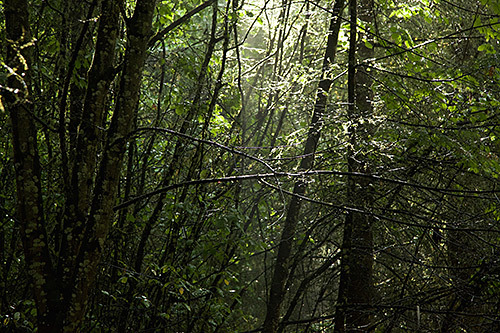I’m a recently admitted grad student at Portland State, and I spent my spring term working for Ooligan Press. On my first day at the press, I peered into the intricate, finely tuned machine that manages the day-to-day workings of the student-run publisher. Multiple departments run the gamut of the book publishing process, from acquisition to print. Within each department, tasks are assigned and the real work of the press is put into motion. There are weekly project meetings for upcoming titles, developmental workshops, and a wide array of design, editing, marketing, and social media topics to cover. What’s been so exciting about the program so far is the way in which these disparate systems work together, seemingly unphased by the monumental task of bringing ideas together and onto the page.
As an alternative to the worn-out phrase “jack of all trades,” Thesaurus.com provides a term you may never have heard of before: “pantologist.” Pantology is the systematic view of all human knowledge, and it was written about at length by a man named Roswell Park. Certainly there aren’t pantological handymen roaming the halls of Portland State, but “Oolies,” as the Ooligan staff members are called, provide a sufficient knowledge base for the development of the many systems needed to run the press.
As we all learn in the publishing program, having a varied set of skills as a professional is simply the new norm. Publishers wear many hats, writers are producing more diverse and complex work, books are being digitized, and their materiality is being called into question. That question, however, seems to be deeply rooted in a history of change and progress. To quote Millicent Weber and Aaron Mannion in Publishing Means Business,
“This work combines an understanding of the symbolic and functional significance of cultural products with investigation of the practical and political ramifications of the real-world context in which these products are produced.”
I consider myself a photography-centric multidisciplinary artist and a conscientious dissident. I strive for innovative, collaborative ways of thinking, and I seek out those who are pushing culture forward. Taking an early note from Kathi Berens, assistant professor of digital humanities and publishing, I’m encouraged by the ways in which publishing technology can make a difference in our collective lives. In the digital skills course, learning to code web pages in HTML is something akin to developing black-and-white negatives. There’s a set of almost invisible information that, once parsed and prodded, creates something new. It is essential to the health of our society that we delve further into the ways in which we communicate and the ways in which content is disseminated.

